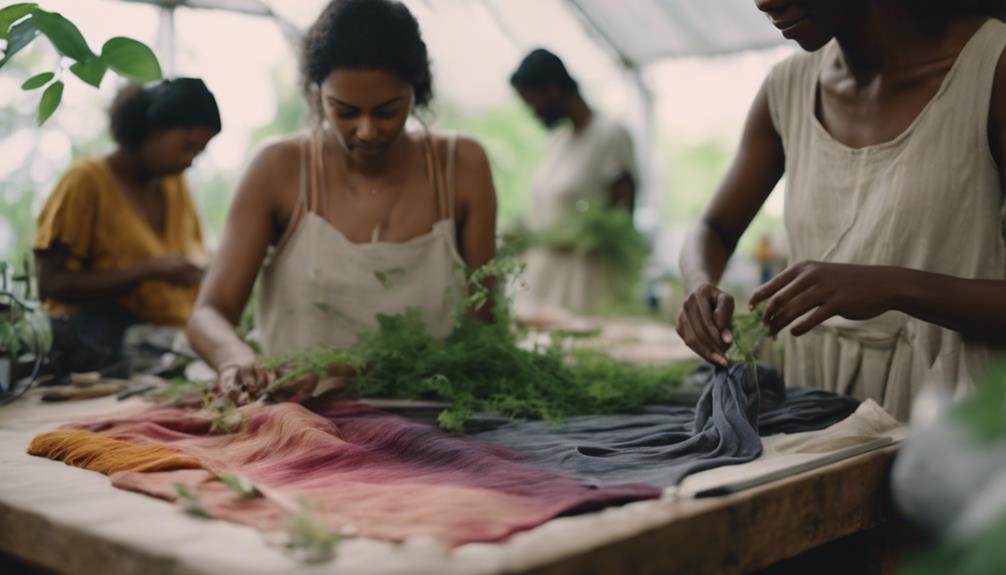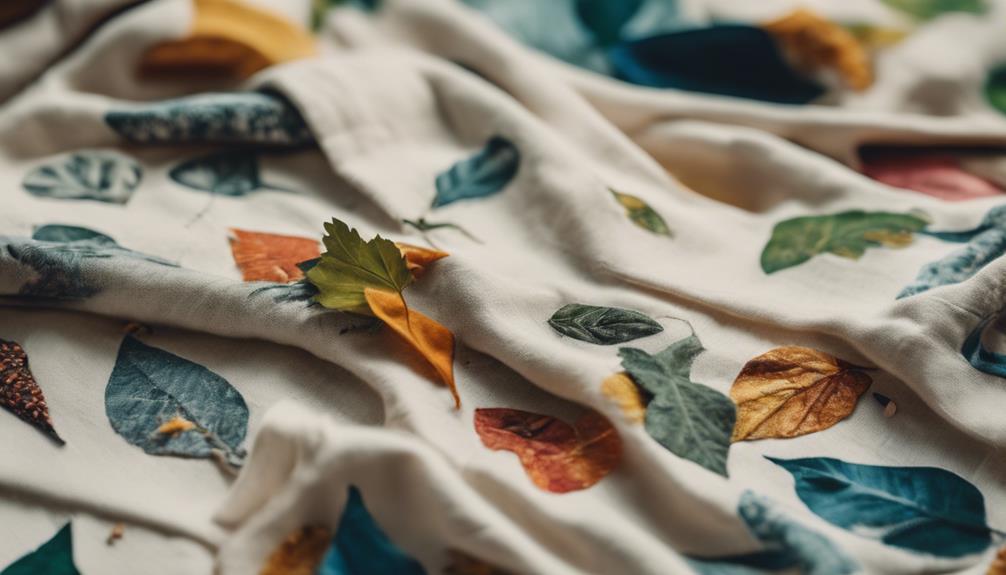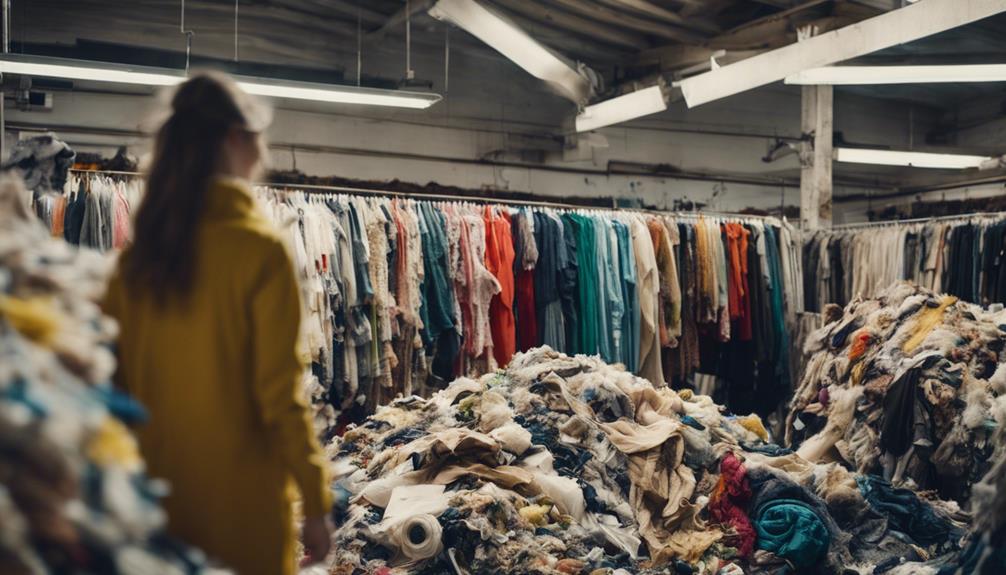Sustainable fashion is created by focusing on eco-friendly materials and ethical practices. This includes the use of biodegradable fabrics such as organic cotton and hemp to reduce waste. Manufacturers often recycle plastics to make new textiles and implement water recycling to minimize pollution. Transparency in sourcing ensures fair labor conditions are met, emphasizing the importance of quality over fast fashion. Technology also plays a key role in transforming old clothing into new fibers through innovative processes. As the industry adopts circular practices, you’ll be impressed by how it’s all connected. There is much more to discover about this fashion revolution!
Key Takeaways
- Sustainable fashion is crafted using eco-friendly materials like organic cotton, hemp, and recycled fabrics to minimize environmental impact.
- Ethical production practices ensure fair labor conditions and support workers' rights throughout the manufacturing process.
- Innovative technologies, such as Evrnu's NuCycl, transform discarded textiles into new fibers, promoting circular fashion.
- Water recycling and eco-friendly dyes are employed in manufacturing to reduce pollution and chemical contamination.
What Is Sustainable Fashion?
Sustainable fashion prioritizes eco-friendly and ethical production practices to minimize environmental impact and improve worker welfare throughout a garment's lifecycle. This movement seeks to challenge the fast fashion industry, which greatly contributes to global greenhouse gas emissions and water pollution. By focusing on high-quality, durable clothing, sustainable fashion encourages you to invest in pieces that won't end up in landfills after a few wears.
In sustainable fashion, brands often utilize biodegradable materials and recycled fabrics, which help reduce waste and pollution. These ethical practices not only promote environmental responsibility but also guarantee that workers are treated fairly throughout the production process. When you choose sustainable fashion, you're supporting a system that values worker welfare and aims for a healthier planet.
Moreover, sustainable fashion advocates for responsible consumption, nurturing a mindset that prioritizes quality over quantity. As clothing consumption is projected to rise dramatically by 2030, embracing sustainable practices is crucial. By opting for eco-friendly options, you're contributing to a movement that seeks to protect our environment and uplift the communities involved in garment production.
Sustainable fashion isn't just a trend; it's a necessary shift towards a more ethical and sustainable future.
Key Principles of Sustainability

Many key principles guide the journey toward sustainability in fashion, focusing on reducing environmental impact and promoting ethical practices.
Sustainable fashion champions the use of recycled materials and eco-friendly fabrics like organic cotton and hemp, which help preserve natural resources while minimizing pollution.
Ethical production practices are essential, ensuring fair labor conditions and safe workplaces for garment workers. This commitment promotes social equity within the industry.
Circular fashion plays a vital role by encouraging recycling, upcycling, and thrifting, which extend the life of clothing and reduce waste.
Slow fashion emphasizes quality and longevity over fast consumption, advocating for durable items that resist disposability. By choosing pieces designed to last, you contribute to a more sustainable future.
Additionally, transparency in sourcing and production processes allows you to make informed decisions about the environmental and social impact of your clothing.
When you embrace these principles, you not only support a sustainable fashion movement but also foster a greater awareness of the industry's effects on the planet and its people.
Sustainable Materials and Practices
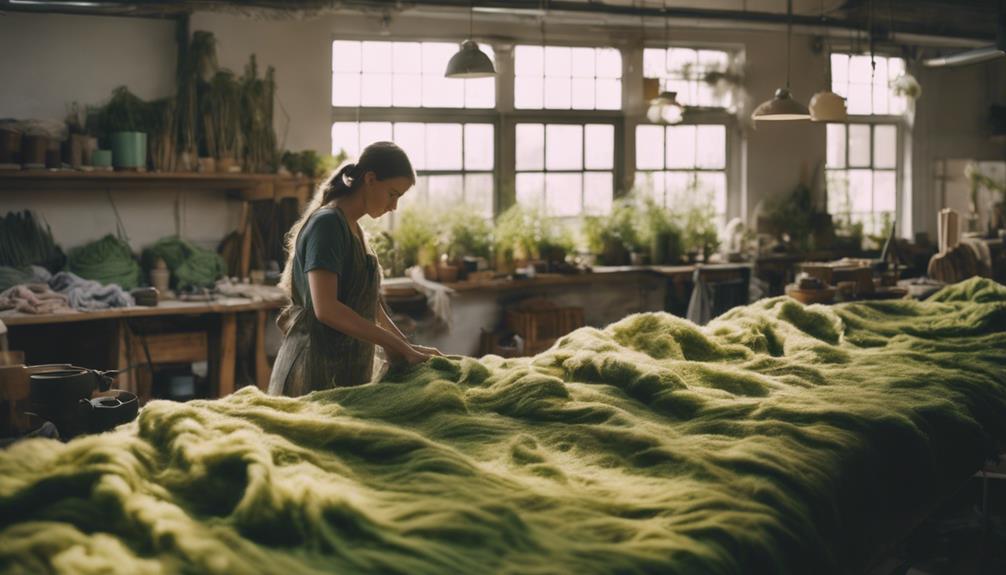
Choosing sustainable materials and practices is key to reducing fashion's environmental impact and fostering a more ethical industry. By opting for biodegradable materials like organic cotton, hemp, and Tencel, you help reduce landfill waste, as these fibers break down naturally. Innovations such as using recycled plastics to create fabrics further minimize resource consumption and keep millions of tons of plastic out of our oceans and landfills.
Implementing water recycling in manufacturing processes is another vital practice, greatly cutting down the pollution that stems from the fashion industry. Many sustainable brands focus on local production, which helps decrease carbon footprints associated with transportation, promoting an eco-friendly supply chain.
Additionally, using eco-friendly dyes and treatments during production reduces the harmful chemicals that often contaminate waterways, addressing the notable environmental risks of traditional textile manufacturing.
The Role of Technology
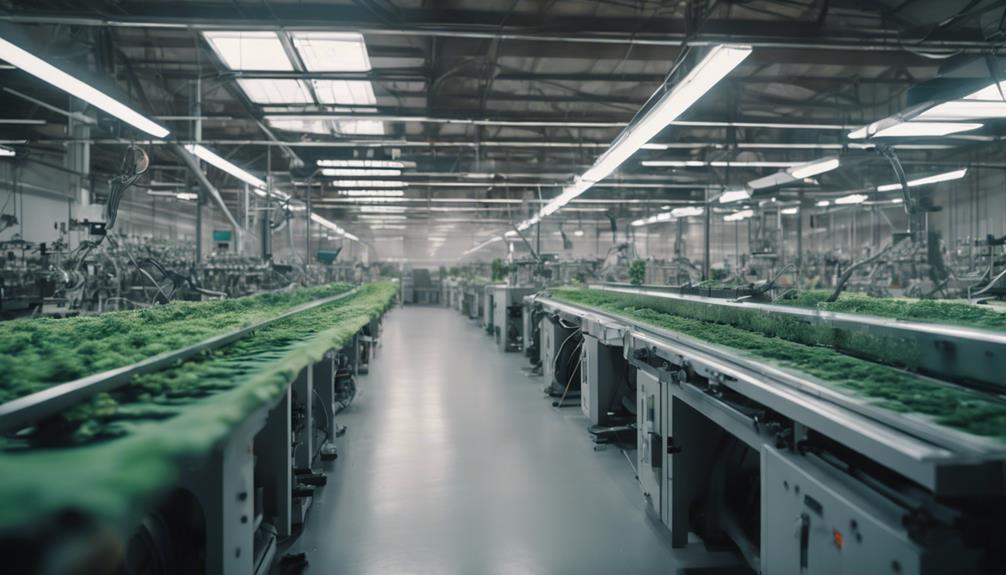
Technology plays a pivotal role in transforming the fashion industry by enabling circular business models that prioritize recycling and repurposing materials. By integrating innovative technology, brands can greatly reduce waste throughout the manufacturing process, leading to a more sustainable fashion landscape.
- Evrnu's NuCycl technology turns discarded clothing into new fibers.
- Regenerative textile technology minimizes waste and lowers carbon footprints.
- Digitalization accelerates the shift to sustainable practices.
These innovations showcase how technology can revolutionize the fashion industry, making it more efficient and environmentally friendly.
As the Pulse of the Fashion Industry report emphasizes, digitalization is key to adopting sustainable practices. It's not just about being eco-conscious; it's also about harnessing technology to create economic advantages. Approximately 55% of emission-reduction strategies in fashion can yield cost savings, proving that investing in sustainable technologies is both beneficial for the planet and profitable for businesses.
In this rapidly evolving industry, embracing technology is essential for driving meaningful change and ensuring a future where sustainable fashion thrives.
The Future of Sustainable Fashion

The future of sustainable fashion looks promising as more consumers prioritize eco-friendly choices, pushing brands to innovate and adopt greener practices.
With 71% of millennials leading this charge, you can expect a shift toward ethical fashion that emphasizes transparency and ethical sourcing. Brands will increasingly invest in innovations in materials, such as biodegradable fabrics and recycled textiles, greatly reducing the environmental impact of clothing production.
As consumer awareness grows, you're likely to see a stronger commitment to sustainable practices. This includes adopting circular economy principles, where brands design products for longevity and recyclability.
Collaboration among brands, consumers, and regulators will play an essential role in accelerating this shift. Eco-friendly production processes will become the norm, making it easier for you to choose sustainable fashion that aligns with your values.
Forward-thinking brands will recognize that embracing these changes not only benefits the planet but also provides a competitive edge in the market. As you shop, your choices will directly influence the industry's direction, encouraging more brands to prioritize sustainability.
The future of fashion is in your hands, and it's looking brighter than ever.
Frequently Asked Questions
How Does Sustainable Fashion Help?
Sustainable fashion helps you reduce your environmental impact by promoting eco-friendly materials and ethical production. It encourages you to extend your clothing's lifespan, supporting fair labor practices while combating climate change and minimizing waste.
What Does Sustainable Fashion Mean to You?
Sustainable fashion means you're choosing styles that respect the planet and its people. It's about investing in quality, supporting ethical practices, and embracing eco-friendly materials, so your choices reflect your values and help create a better future.
Why Is Sustainable Fashion Important for the Future?
Sustainable fashion's important for your future because it reduces carbon emissions, prevents waste, and conserves water. By choosing eco-friendly options, you support a healthier planet and encourage the industry to adopt responsible practices.
What Do People Think About Sustainable Fashion?
Imagine a garden thriving with diverse blooms; that's how people view sustainable fashion. They're increasingly prioritizing eco-friendly choices, with 71% of millennials embracing it, making conscious decisions that reflect their values and hopes for the future.
What Is the Process of Making Sustainable Fashion, and How Did It Evolve Over Time?
The sustainable fashion history initiation began with an emphasis on ethical sourcing, eco-friendly materials, and fair labor practices. Over time, the process of making sustainable fashion has evolved to include innovative technologies, waste reduction strategies, and a focus on circularity. It has become a holistic approach to creating fashion with a positive impact.
Conclusion
Sustainable fashion isn't just a trend; it's a movement towards a better future.
By choosing eco-friendly materials, embracing ethical practices, and leveraging innovative technology, you can make a difference with every purchase.
Imagine wearing clothes that not only look good but also do good.
Picture supporting brands that prioritize our planet and its people.
Together, we can transform the fashion industry into one that values sustainability.
Your choices today can shape the world of tomorrow.
